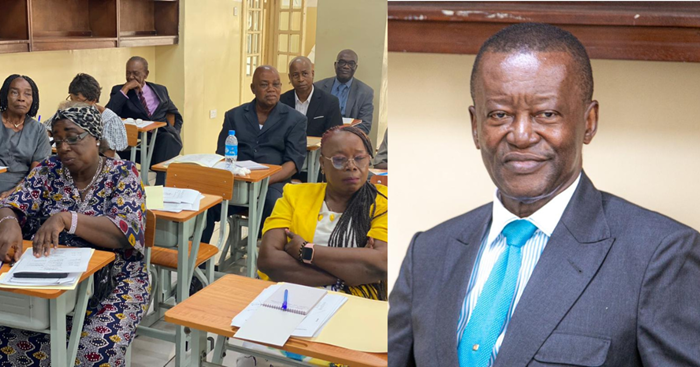The Judiciary of Sierra Leone, through the Judicial and Legal Training Institute (JLTI), has successfully concluded a comprehensive training program for eighteen new Justices of the Peace (JPs).
This initiative is set to enhance the effectiveness and efficiency of the JPs as they prepare to begin their duties at the Pademba Road and Ross Road Magistrates Courts in Freetown.
The training was officially opened by Acting Chief Justice, Hon. Justice N. C Browne-Marke, who underscored the critical role of JPs in alleviating the burden on magistrates and supporting the Judiciary in delivering timely justice.
“There is an urgent need for Justices of the Peace to support the Judiciary and the country by presiding over certain cases,” Justice Browne-Marke stated. He emphasized that the aim of the training is to revamp the JP system to ensure it meets its goal of expeditious justice.
Justice Browne-Marke also provided a historical context, noting that the system of JPs originated in England around 1461 as a means for the King to delegate adjudication duties to senior citizens with proven track records, thereby reducing the caseload on royal courts.
He highlighted that becoming a JP does not necessitate a formal legal education but requires practical experience and a demonstrated capacity for judicial fairness.

During the training, key topics were covered, including an introduction to the Sierra Leone court system, the role of JPs as adjudicators, and procedural guidelines for handling cases. Hon. Justice Monfred Sesay (JA) explained the hierarchical structure of Sierra Leone’s court system, emphasizing the importance of accurate record-keeping for effective case management.
Principal Magistrate His Worship Sahr Kekura provided guidance on differentiating between criminal cases handled by the Inspector General of Police and private criminal summons, stressing the importance of thorough case preparation and understanding judicial terminology such as “acquitted” and “discharged.”
Master and Registrar of the High Court, Elaine Thomas-Archibald, advised the JPs on the necessity of proper case management practices, warning that neglecting record-keeping could hinder swift justice and lead to wrongful convictions.
Hon. Justice Reginald Fynn (JA) addressed the ethical responsibilities of the JPs, emphasizing the need for impartiality and caution against corruption. He reminded the participants of their duty to uphold the Judicial Code of Conduct.
Participant Memunatu B. Sesay expressed her appreciation for the timely training and committed to ensuring fair and expeditious justice. The training concluded with a mock trial, providing the JPs with practical experience in a courtroom setting.
This training marks a significant step towards strengthening the judicial system in Sierra Leone and enhancing the capacity of its Justices of the Peace.











